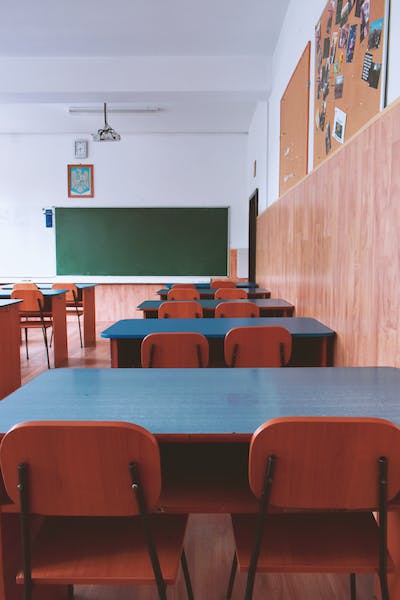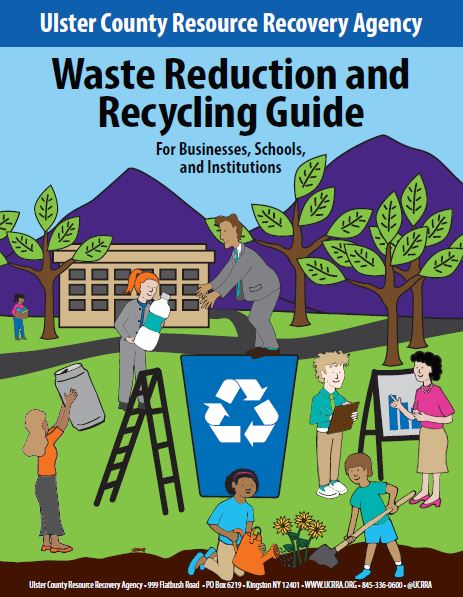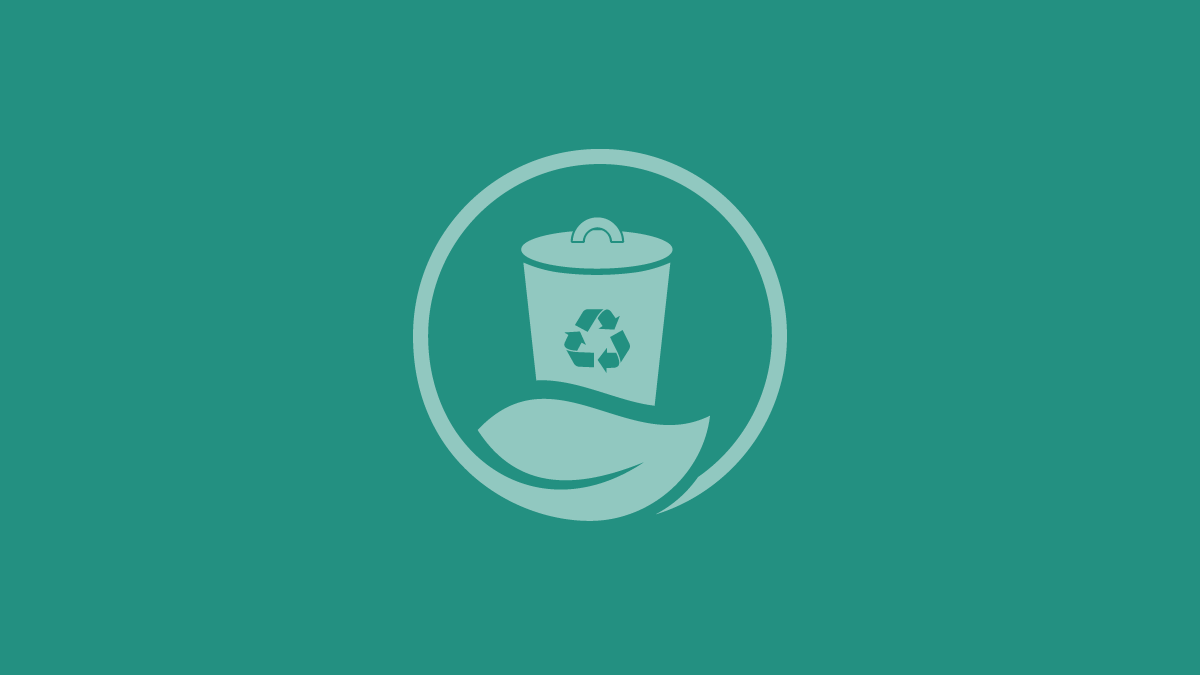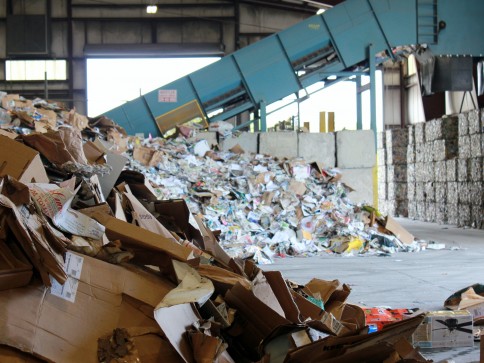Back to School Sustainability Tips
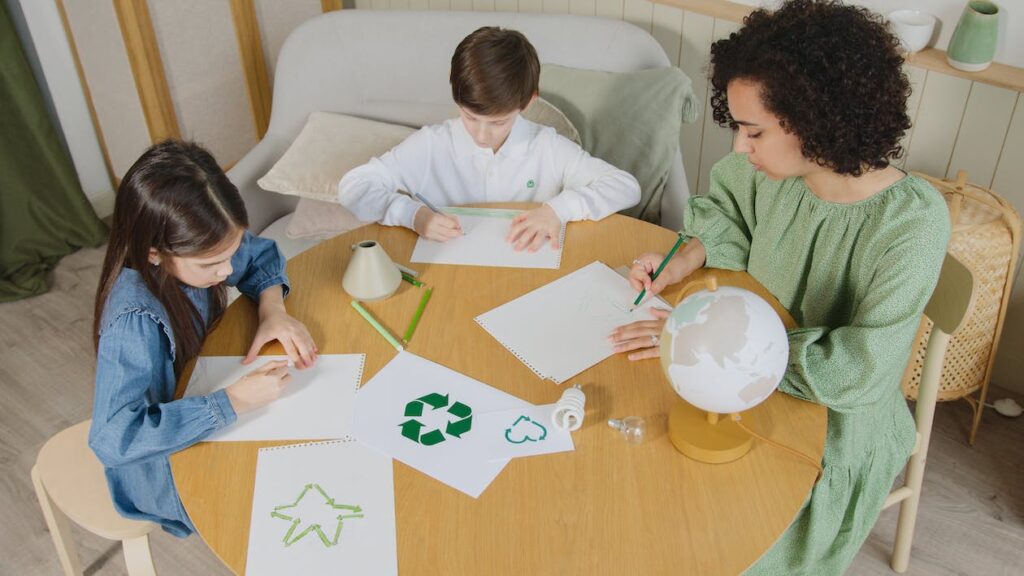
Blog by Angelina Brandt, UCRRA Director of Sustainability
August 14th 2023
Did you know that almost 80% of the municipal solid waste generated in schools could be reduced, composted, and recycled? A study done by the Minnesota Pollution Control Agency (2010) found that up to 78% of school waste could be diverted from the trash. Throughout their study, it was found that “true garbage” was only fifteen percent (15%) of material in the waste stream. Fifty percent (50%) of school waste could be managed by composting programs that accept food waste, liquids, and non recyclable paper (paper towels, napkins, paper plates) and twenty eight percent (28% ) of school waste sampled could be diverted into the recycling stream. The study represented waste and recycling samples from six schools, and the researchers found that the average student generated 0.52 pounds of trash while at school each day.
Our schools in Ulster County are key stakeholders to accomplishing our county’s sustainability goals, as well as the mission of the UCRRA. Schools have a unique opportunity to add value to their community by promoting recycling and composting, and with the added benefit of potentially saving taxpayer dollars through better recycling and waste diversion!
Recycling at School:
- Demonstrates concern for the environment to prepare youth with citizenship and leadership skills
- Provides opportunity for youth engagement in environmental education and ecological literacy
- Prepares youth to act on the environmental sustainability challenges of the future
- Increases operational and fiscal efficiencies by reducing waste disposal fees and costs of materials, office supplies, equipment etc.
This blog explores some sustainability ideas for students of all ages who are heading back to school this Fall. We’re sharing our top five tips to help “green” your back to school routine! This blog also highlights some helpful ideas for school administrators and faculty members to promote waste reduction culture in the greater school community. Know someone who might enjoy this blog? Please pass it along!
Back to School Sustainability Tips for Grades K-12!
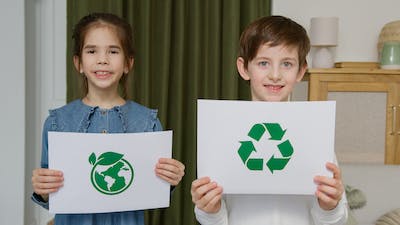
- Shop for Supplies at Home First – You can easily avoid overspending on items you probably already have around the house! Practice reuse by first checking your junk drawer, home offices, desks, and closets for supplies. Just because it’s a new school year doesn’t mean all supplies have to be brand new. If you find supplies that are usable but not in perfect condition, consider donating them to a local library or an organization you care about. Hosting a back to school swap with some local parents is a great way to socialize and share old clothing or excess school supplies too!
- Pack Waste-Free Lunches – Preparing a low-waste lunch is easier than it sounds! With a little creativity, you will uncover just how unnecessary those single use plastic baggies really are… there are plenty of reusable containers (like Tiffins) that are sectioned off to help control servings. You can DIY your BYO and wrap a set of utensils from the silverware drawer in an old cloth napkin. A small reusable bottle can replace individually packaged servings of juice, or juice boxes that just fill up the garbage can. Not only will you cut down on waste, but this will significantly cut down on costs! Remember to stick to the basics, start small, and think about the bigger impact! “Zero waste” is all about these little efforts that make a big difference, and does not have to be perfect!
- Be Paper-Wise – Talk with your child about how paper is made, and why it’s important to recycle paper to protect trees! Encourage younger kids to use both sides of paper for scrap/notes before recycling. Encourage older kids to use double sided printing settings and digital copies whenever possible. You may even consider contacting your child’s teacher to ask about going paperless, even for just parent communications. Forty seven percent (47%) of school solid waste is paper that could be reduced or recycled (Los Angeles School Waste Composition Study). If purchasing new notebooks and calendars, look for items made with post consumer recycled content or items made from sustainably harvested wood.
- Avoid Plastic – Most school supplies like pencil cases, lunch boxes, backpacks, and three ring binders are made from different plastics. Plastics contain chemical additives, like poly vinyl chloride, or PVC, which contains phthalates. Chemicals in found in common plastic objects are increasingly being studied and linked to health problems. Phthalates are now banned in most children’s toys, but are still commonly found in school supplies, as is BPA. Many of these plastic school supplies are also not recyclable in your home recycling bin – all more reasons to look for alternative materials when you can – and the supplies will last longer too!
- Teach Kids How to Care – Making these sustainable swaps is great, but the impact goes even further when kids learn why these choices are made! Finding ways to turn these swaps into teachable moments helps make the changes more meaningful. Thoughtful conversations will help children become more critical thinkers and be more prepared to act on the environmental challenges of the future!
Back to School Tips for College Students
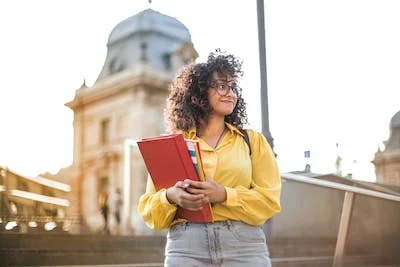
- Coordinate with roommates! Coordinate large purchases like furniture and appliances with future roommates/suitemates. When you do purchase appliances, look for Energy Star-rated products that save electricity. Switch out incandescent lightbulbs for LED that use less energy. Rechargeable batteries are preferred over Alkaline – they last longer and are easier to recycle at special drop off programs.
- Give Second-Hand Stuff a Second Chance! Many dorm room supplies like storage baskets, desks, chairs, dressers, lamps, etc. can be found second hand. Thrifted clothing is also new-to-you and can make the new school year feel fresh. Shopping for vintage items is not only sustainable and affordable, but vintage items also bring special character and personality!
- Buy used textbooks. Websites such as eCampus and Amazon Textbook Rentals carry used titles, or check with the school bookstore if buying used is an option. Renting textbooks has also become more common and is often more economical.
- Ask about recycling. Colleges often have sustainability committees, environmental clubs, or other ways to stay informed about what can be recycled. Ensure dorm rooms have a recycling bin and students understand how to recycle. Remember, recycling rules can vary and every community can have a different set of recycling guidelines! Universities may also require residents to separate recyclables.
- Remember to pack reusable plates, napkins, and cutlery and reusable shopping bags!
Sustainability Tips for School Administrators
- Recycling; it’s the law! Let us help you to make sure the school is recycling properly. We offer free consultation services about facility recycling, and can provide free recycling bin posters and bin stickers to help support your program. Request some supplies here!
- Join a recycling challenge! This is a fun and easy way to earn money or other rewards for the school while also revamping your recycling program. More information about grants and contests can be found on our webpage for schools linked here. Other challenge ideas: encourage teachers/faculty to bring their own coffee mug everyday for a month – try it as an Earth Day challenge and let the students keep track of who is in the lead! Or hold recycling contests between classrooms or grades to see who can collect the most recyclable materials in a week, or who can make the less trash at lunchtime.
- Cut down on paper by circulating memos or use email instead of printing. Use default Double-Sided Printing on all computers.
- Build community around a culture of sustainability. Establish an environmental club that encourages recycling throughout the school! You’d be amazed what a small group of passionate people can accomplish! Plan an end of the year recycle day for students to recycle their unwanted paper or a donation drive for leftover school supplies (crayons, pencils, binders, etc.) Or, set up a permanent supply share closet for students and teachers to promote reuse.
- Eliminate single use plastics. Opt for bulk food options in cafeterias and teacher lounges (condiments, sugar, coffee, salt/pepper, etc.) to reduce individual servings. You can may also be able to eliminate single use plastics like forks, spoons, straws, etc. Check out Cafeteria Culture to learn how to hold a Plastic-Free Lunch Day!
These are only a few of our favorite tips for Schools. You can invite the Recycling Outreach Team to visit your classrooms with one of our many Youth Programs! Learn more tips by checking out our Waste Reduction & Recycling Guide for Schools, Businesses, and Facilities!

